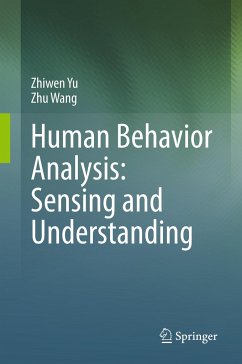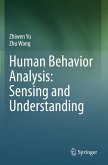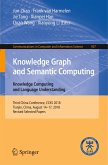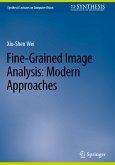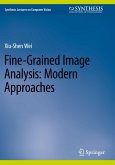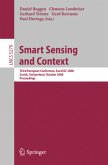Over the last decade, there has been a growing interest in human behavior analysis, motivated by societal needs such as security, natural interfaces, affective computing, and assisted living. However, the accurate and non-invasive detection and recognition of human behavior remain major challenges and the focus of many research efforts.
Traditionally, in order to identify human behavior, it is first necessary to continuously collect the readings of physical sensing devices (e.g., camera, GPS, and RFID), which can be worn on human bodies, attached to objects, or deployed in the environment. Afterwards, using recognition algorithms or classification models, the behavior types can be identified so as to facilitate advanced applications. Although such traditional approaches deliver satisfactory performance and are still widely used, most of them are intrusive and require specific sensing devices, raising issues such as privacy and deployment costs.
In this book, we will present our latest findings on non-invasive sensing and understanding of human behavior. Specifically, this book differs from existing literature in the following senses. Firstly, we focus on approaches that are based on non-invasive sensing technologies, including both sensor-based and device-free variants. Secondly, while most existing studies examine individual behaviors, we will systematically elaborate on how to understand human behaviors of various granularities, including not only individual-level but also group-level and community-level behaviors. Lastly, we will discuss the most important scientific problems and open issues involved in human behavior analysis.
Traditionally, in order to identify human behavior, it is first necessary to continuously collect the readings of physical sensing devices (e.g., camera, GPS, and RFID), which can be worn on human bodies, attached to objects, or deployed in the environment. Afterwards, using recognition algorithms or classification models, the behavior types can be identified so as to facilitate advanced applications. Although such traditional approaches deliver satisfactory performance and are still widely used, most of them are intrusive and require specific sensing devices, raising issues such as privacy and deployment costs.
In this book, we will present our latest findings on non-invasive sensing and understanding of human behavior. Specifically, this book differs from existing literature in the following senses. Firstly, we focus on approaches that are based on non-invasive sensing technologies, including both sensor-based and device-free variants. Secondly, while most existing studies examine individual behaviors, we will systematically elaborate on how to understand human behaviors of various granularities, including not only individual-level but also group-level and community-level behaviors. Lastly, we will discuss the most important scientific problems and open issues involved in human behavior analysis.

